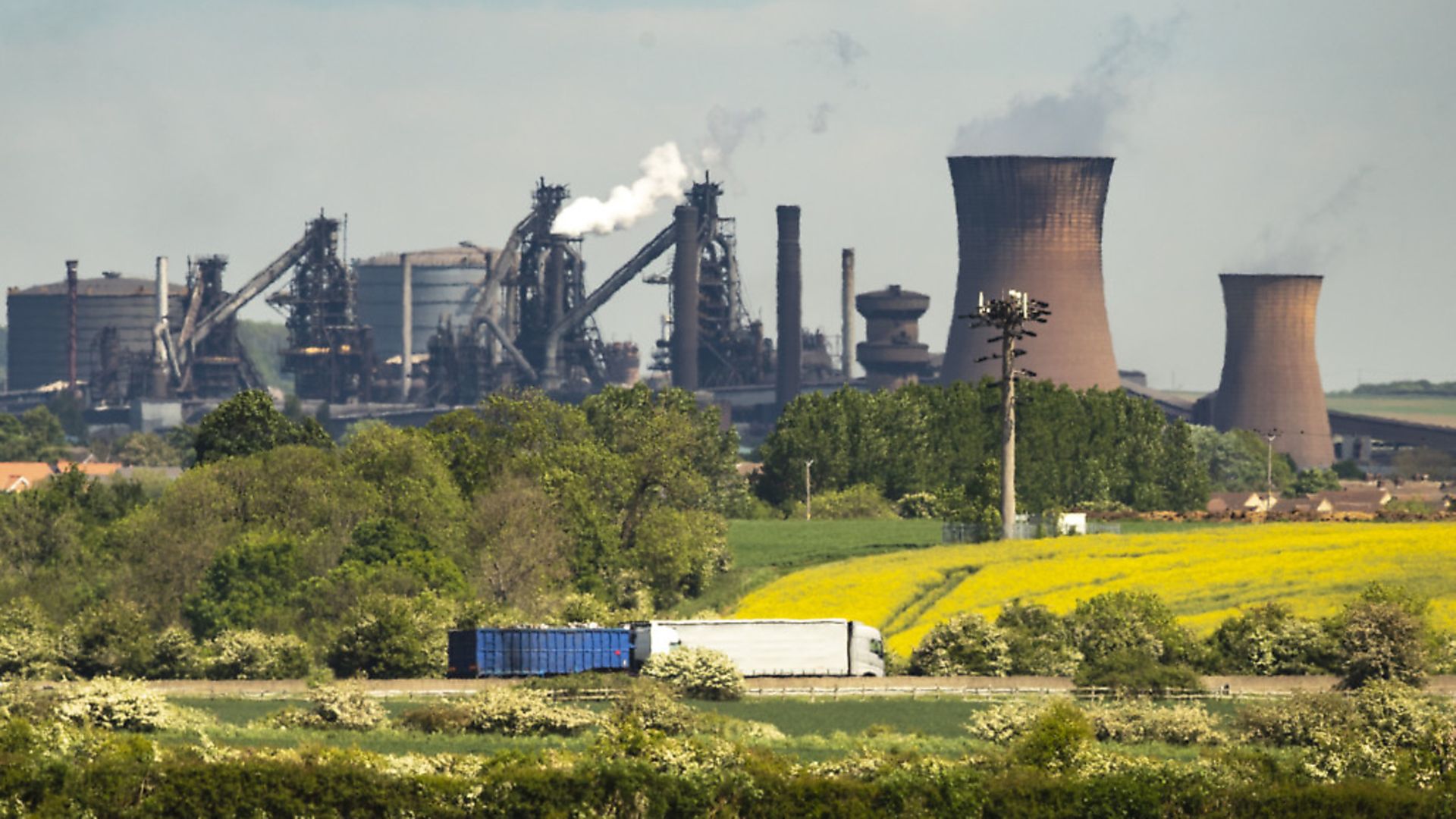
British Steel has gone into liquidation, threatening thousands of jobs, with owners blaming ‘Brexit-related issues’. But what were its Brexit issues and what part did they play?
The death knell came when the government refused to grant a request for £75 million in help, even when the company owners, private equity firm Greybull capital, reduced that figure to £30 million.
Offering that cash would not have been lawful, claimed business secretary Greg Clark, saying: “The government can only act within the law, which requires any financial support to a steel company to be on a commercial basis.”
Instead of a bailout the government offered a longer-term commitment to procuring more steel for public works from the company.
British Steel was acquired by Greybull after the referendum in 2016, and has been troubled by numerous factors unrelated to Brexit.
The industry worldwide has been affected by US-Chinese trade wars, cancelling out any advantages brought about by the weak pound that could have brought foreign buyers in.
Further, Greybull, who had no experience of managing heavy industries when they acquired British Steel, has been behind several high-profile business failures – often with a huge cost to the taxpayer.
Consumer electronic retailer Comet, the M convenience store chain, and Monarch Airlines have all collapsed under Greybull – the latter leaving 80,000 tourists stranded.
Critics have cast doubt on Greybull’s credibility, and in deciding not to bail them out the government may well have had in mind the £60 million bill handed to the taxpayer in the Monarch Airlines fallout.
Greybull say they invested £500 million into the company, but its plants needed serious modernisation and an increase in capacity to become profitable, and Greybull’s pockets may not have been deep enough to achieve this.
Such problems are considerable, and as Greybull bought the company after the referendum, they can’t have been feeling too concerned about Brexit at the time.
Nonetheless, Brexit has also landed at least two killer blows to the company, with insolvency firm Shakespeare Martineau calling it “the first heavyweight casualty of Brexit”.
Firstly, the basic uncertainty that is giving all companies pause will be hitting the steel industry extra hard, as the industry works over long timelines and steel orders are made well in advance.
International customers have no incentive to place a steel order before they know what sort of tariffs they will be paying under a future Brexit trade arrangement.
“Brexit has stripped British Steel’s overseas order book down to the bone,” said Jo Stevens MP, who supports a People’s Vote.
Secondly, Brexit has put British Steel between a rock and a hard place when it comes to EU carbon emissions rules.
The EU’s Emissions Trading Scheme (ETS), which is meant to incentivise heavy industry to cut carbon emissions, requires payments from companies but offers some free allowances of carbon credits to help ease the burden on those facing stiff international competition.
As part of its Brexit negotiations, the government agreed to remain bound by the EU’s Emission’s Trading Scheme until 2020, but British Steel no longer qualified for free credits.
This led to British Steel receiving a £120 million bill in April, which the government bailed out with a loan.
“Britain’s remaining steel industry … has been thoroughly stiffed by the EU,” complained the Spectator’s Ross Clark.
But of course, if we hadn’t opted to leave in the first place, or if negotiations had gone better, this problem wouldn’t exist.
“We know now the only deal that protects jobs and British industry is our current one as a member of the European Union,” said MP and Best for Britain supporter Madeleine Moon.
Whatever the cause, the blow to British industry can’t be overestimated.
The company employs around 5,000 people, and another 20,000 are employed further down its supply chain.
British Steel has existed in several forms since 1967, since British Steel Corp was inaugurated as part of a nationalisation project that brought together 90% of the country’s steel producers.
By the 1970s, this was operating at a loss, but governments chose to subsidise the industry until 1988, when Margaret Thatcher’s government privatised it as British Steel PLC.
The company merged with others and changed hands until it was acquired by Greybull Capital for £1.









